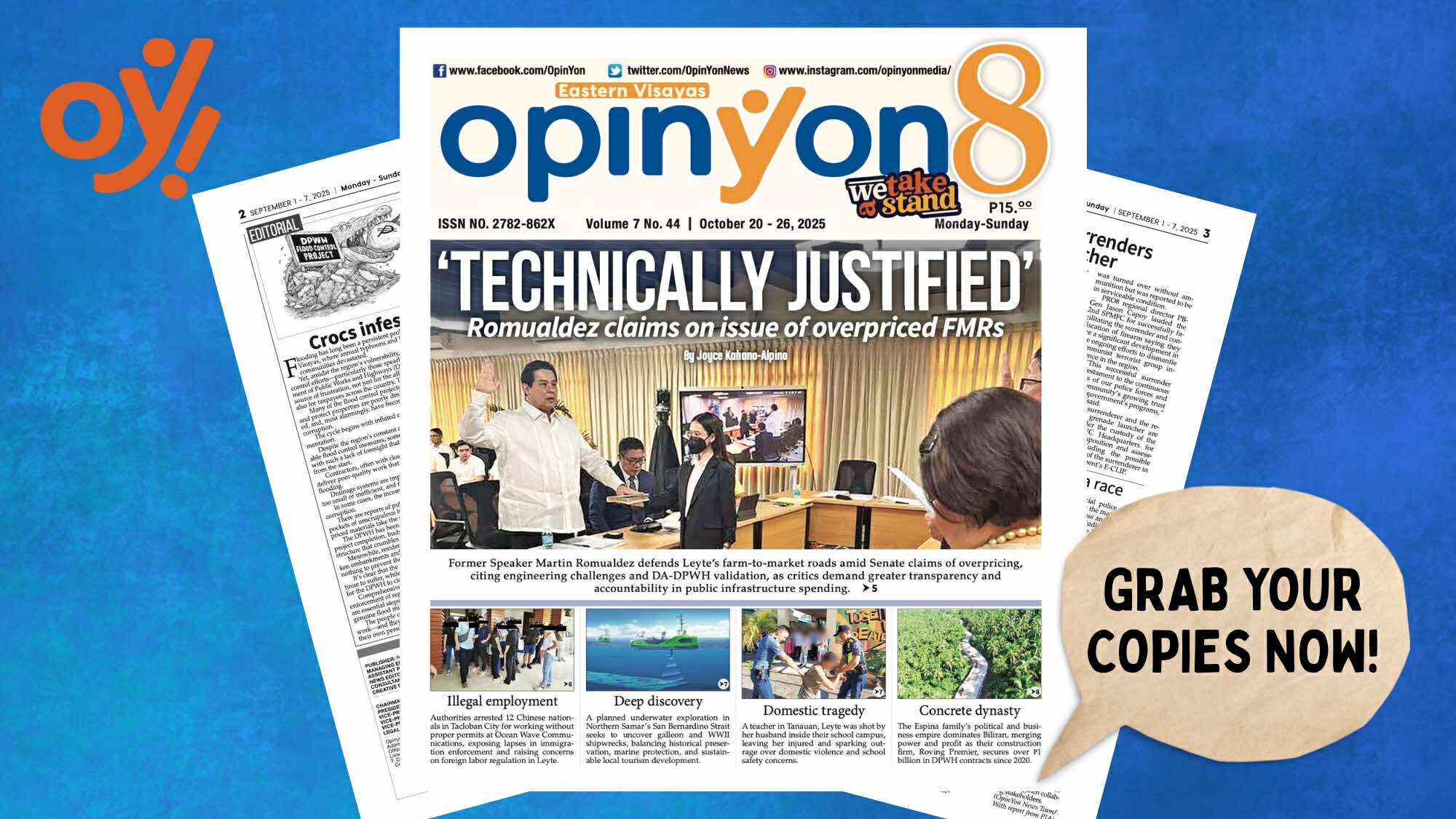Former House Speaker and Leyte 1st District Representative Ferdinand Martin Romualdez has denied allegations that farm-to-market road (FMR) projects in his district were overpriced, asserting that the contracts were “fully validated” by the Department of Agriculture (DA) and the Department of Public Works and Highways (DPWH).
The denial follows revelations from the Senate Blue Ribbon Committee, which recently flagged more than ₱10 billion worth of FMR projects nationwide as “extremely overpriced.”
Among those questioned were two projects in Romualdez’s political stronghold, the Barangay 93 Bagacay FMR and San Roque FMR Phase 2 in Tacloban City.
While Romualdez insists that the projects are technically sound and justified by terrain difficulties, industry analysts and watchdog groups have begun to challenge the opacity of project validation, noting inconsistencies in the DA’s documentation and lack of public access to detailed cost breakdowns.
“There was no overpricing,” Romualdez said in a statement last weekend.
“All our FMRs were validated by DA and DPWH engineers. These are legitimate projects built for farmers, not political gain.”
High terrain, higher costs
Government documents show that the Bagacay FMR, a mountain-type road cutting through steep, unstable slopes was priced at ₱12.7 million per kilometer, while the San Roque Phase 2 project cost about ₱12.3 million per kilometer.
Both figures, according to the DA, fall within its allowable cost ceiling for upland terrain.
However, independent engineers pointed out that similar FMR projects in nearby Samar and Biliran provinces averaged at ₱8 to ₱10 million per kilometer, even with comparable elevation and soil conditions.“Costs can rise with slope protection and drainage work, but a ₱4-million difference per kilometer needs clear documentation,” said a retired DPWH engineer who requested anonymity.
“Without itemized data on materials, right-of-way payments, and substructure works, it’s impossible to know if the markup is justified.”
The DA’s validation reports, released this week, confirm that the Bagacay project has yet to receive full funding due to unresolved right-of-way and ancestral land disputes.
But the agency’s cost evaluation notes remain partially redacted, citing procurement confidentiality.
Politics behind the pavement?
Romualdez’s defense comes amid rising political tension, with critics suggesting that the FMR issue is not purely technical but deeply political.
Senator Sherwin Gatchalian, during recent budget hearings, questioned why Romualdez’s district received a disproportionately high number of FMR allocations compared to other Eastern Visayas areas.
“Public infrastructure should be based on need and planning, not political reach,” Gatchalian said.
Meanwhile, House Deputy Speaker Ronaldo Puno, a known Romualdez ally, labeled the allegations as a “premeditated demolition job” meant to weaken the former Speaker ahead of his scheduled testimony before the Independent Commission for Infrastructure (ICI).
“The DA already cleared these projects,” Puno said. “Recycling the same accusations days before his ICI appearance is clearly political theater.”
But governance advocates argue that dismissing the issue as “political” risks undermining accountability.
Accountability and the cost of trust
For residents of Tacloban City’s upland barangays, the issue is more than a budget line: it’s about credibility and impact.
Farmers in Barangay San Roque confirm that the new road has improved market access, yet others wonder whether the province could have achieved similar outcomes with less spending.
“This road helps us, yes,” a Tacloban resident told OpinYon 8 “but if it’s true that it was overpriced, then we paid for it twice once with taxes, and once with trust.”
As the Senate and ICI deepen their inquiries, the controversy exposes a deeper fault line in Philippine infrastructure governance where technical justification often collides with political patronage.
Romualdez’s insistence on technical validation may hold up in audit reports, but analysts say the broader question remains.
How transparent are the processes that define what’s ‘justified’ in public spending?
Until the DA releases full cost documentation and independent validation becomes standard practice, the Leyte FMR controversy will continue to symbolize a recurring problem in Philippine politics where the line between development and discretion remains dangerously blurred.
#WeTakeAStand #OpinYon #OpinYonNews #Cover
